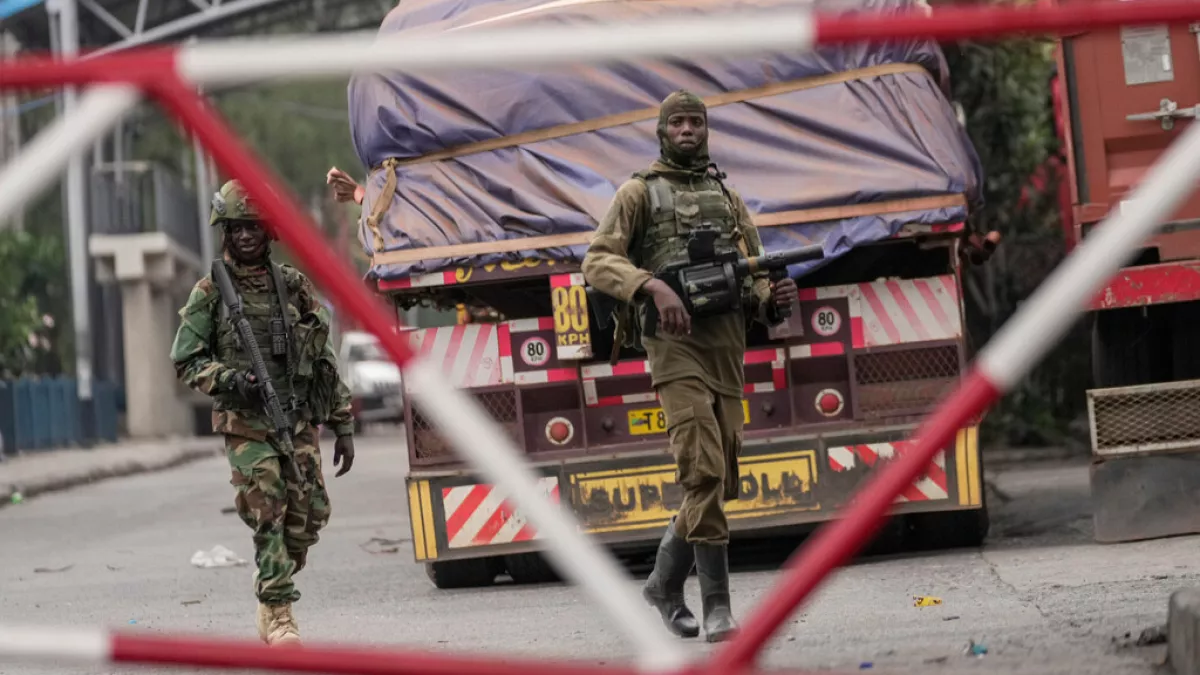
As M23 rebels, reportedly backed by Rwanda, continue their advance through eastern Democratic Republic of Congo, the government has vowed to mount a military response to regain lost territory. Rebels seized the strategic city of Goma on Monday and have since pushed further south, threatening the capital of South Kivu province, Bukavu.
Congo’s President, Félix Tshisekedi, who addressed the nation on Wednesday evening, expressed a preference for diplomatic solutions but warned that the escalating situation, fueled by the presence of Rwandan soldiers on Congolese soil, was edging toward an unpredictable conflict. “The presence of thousands of Rwandan soldiers is leading to an escalation with unpredictable consequences,” Tshisekedi said, affirming his intention to recover lost ground.
The East African Community (EAC), an intergovernmental bloc consisting of eight countries, convened an emergency summit and called for an immediate ceasefire, urging Congo to negotiate with the M23 rebels. The United Nations Security Council echoed this call earlier in the week, demanding a halt to the rebel offensive.
While both Congo and Rwanda are members of the EAC, Tshisekedi did not attend the summit, while Rwanda’s President, Paul Kagame, participated. The summit’s appeal, however, has yet to yield any significant change on the ground.
After capturing Goma, the rebels advanced further south, moving toward Bukavu’s airport. The rebels have seized significant territory along the western shore of Lake Kivu, exacerbating the already volatile situation. The current escalation represents the most significant flare-up in the region’s decades-long conflict since 2012.
The crisis has deep historical roots, dating back to the 1994 Rwandan genocide, which spilled over into Congo, leading to years of instability. Both Rwanda and Congo have been embroiled in a struggle for control of the region’s mineral resources, further fueling tensions.
In Goma, the humanitarian situation is dire, with aid workers, displaced persons, and U.N. peacekeepers caught in the crossfire. Reports indicate that some mercenaries hired by Congo to support its defense have retreated to Rwanda, exacerbating the government’s struggle.
Congo blames Rwanda for supporting the M23, an ethnic Tutsi-led group, which has been involved in multiple insurgencies since the 1990s. Rwanda, on the other hand, argues that Congo shelters perpetrators of the Rwandan genocide, presenting a direct threat to both Congolese Tutsis and Rwanda’s security.
Meanwhile, Rwanda’s Foreign Minister has called for a ceasefire in the region and urged Congo to enter negotiations with the rebels. The East African leaders are planning a follow-up summit with their southern African counterparts in the coming days. President Tshisekedi also visited Angola on Wednesday, where he met with officials who have mediated in the conflict.
The volatile situation in eastern Congo continues to unfold, with diplomatic efforts and military responses both playing key roles in the search for resolution.
